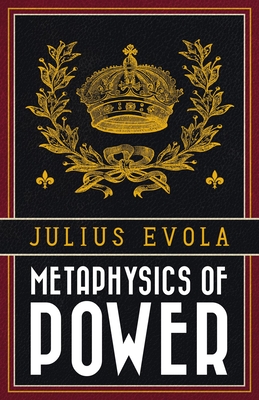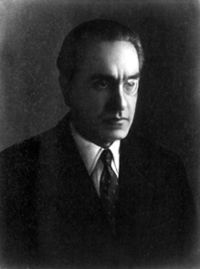
'The nobility must awaken, or else resign itself to perish, and not even gloriously: to perish by corrosion and fatal submersion. To awaken - that means: to become once more, at any cost, a political class.' Metaphysics of Power is a collection of Julius Evola's powerfully argued articles organised into areas key to Evola's thought: the State, Education, Family, Liberty & Duty, Monarchy, Empire, Modern Society, and Aristocracy. Coursing through much of Evola's work represented here is the key notion of the four-caste system: king, warrior, merchant, and laborer; which is clearly explicated in Decline of the Idea of the State and often referred to in other articles. The theme - namely the deviation from this ancient and nearly universal tradition - is part of the bedrock of Evola's critique on why the modern state often fails. Various articles in this work touch on sensitive themes and demonstrate Evola's nuanced approaches to issues such as divorce, the Catholic Church's understanding of marriage, and individualism, but also handle with humor educational approaches such as the Montessori School, feminism, bureaucracy, and Europe's modern nobility. Most of these articles are translated here for the first time and offer the reader - in strong, erudite English matching Evola's strong, erudite Italian - a deeper dive into Evola's thoughts, philosophy, and opinions, while the tone of these articles ranges from patient and pedagogical to brutal and scathing. Metaphysics of Power represents a must-have for the seasoned disciple of Evola's philosophy, but is also a unique opportunity for the novice in traditionalist studies as it offers smaller, tighter explanations of Evola's views on key issues.
Author

Julius Evola (19 May 1898 – 11 June 1974), born Giulio Cesare Andrea Evola, was an Italian philosopher and esoteric scholar. Born in Rome to a family of the Sicilian landed gentry, Evola was raised a strict Catholic. Despite this, his life was characterised by 'an anti-bourgeois approach' hostile to both 'the dominant tradition of the West—Christianity and Catholicism—and to contemporary civilization—the 'modern world' of democracy and materialism'. By turns 'engineering student, artillery officer, Dadaist poet and painter, journalist, alpinist, scholar, linguist, Orientalist, and political commentator', he has been described as a 'rare example of universality in an age of specialization'. Yet behind it all lay a singular emphasis on, and pursuit of, a 'direct relationship to the Absolute'. For Evola, 'the center of all things was not man, but rather the Transcendent.' This metaphysical conviction can be seen to have determined both Evola's stance on socio-political issues, and his antipathetic attitude towards 'all professional, sentimental and family routines'. The author of many books on esoteric, political and religious topics (including The Hermetic Tradition, The Doctrine of Awakening and Eros and the Mysteries of Love), his best-known work remains Revolt Against the Modern World, a trenchant critique of modern civilisation that has been described as 'the gateway to his thought'. Since his death, also in Rome, his writings have influenced right-wing, reactionary and conservative political thought not only in his native Italy, but throughout continental Europe and, increasingly, the English-speaking world. Nevertheless, he should not be considered primarily as a political thinker, but rather as an exponent of the wider Traditionalist School that encompasses the work of such individuals as René Guénon, Titus Burckhardt and Frithjof Schuon.